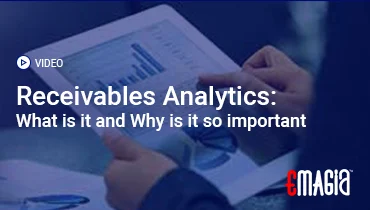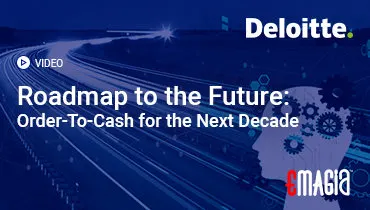The role of the Chief Financial Officer (CFO) is no longer confined to the back office, meticulously managing spreadsheets and reporting on historical financial data. The traditional image of the CFO as a strict financial gatekeeper is rapidly becoming a relic of the past. Today, the modern CFO is a strategic co-pilot to the CEO, a driver of digital transformation, and a custodian of the company’s long-term value. This seismic shift is being driven by a perfect storm of factors: increasing economic volatility, the rise of artificial intelligence and advanced analytics, and a growing demand for transparency and accountability from all stakeholders. In this new landscape, a CFO’s success is measured not just by their ability to manage costs and ensure compliance, but by their capacity to leverage technology, analyze complex data, and provide forward-looking insights that guide the entire organization. The future of the CFO is dynamic, demanding, and filled with unprecedented opportunities to create value.
This comprehensive guide will take a deep dive into the most critical future trends for CFOs. We will explore the key pillars of this evolution, from the technological shifts that are automating routine tasks to the strategic imperatives that are redefining the finance function. We will examine how a CFO can move from a reactive, reporting-focused role to a proactive, insights-driven leader who is at the heart of every major business decision. Our goal is to provide a clear, detailed, and actionable blueprint for current and aspiring CFOs who are ready to embrace the challenges and opportunities of this new era. We will show you how to build a modern, agile finance department that is not just a cost center but a strategic engine of growth and resilience. The future of finance is here, and it is the CFO who will be at the helm, steering the organization toward success.
The AI Imperative: AI and Automation at the Core of Finance
Perhaps no trend is more influential in reshaping the role of the CFO than the widespread adoption of artificial intelligence and automation. These technologies are fundamentally changing how finance departments operate, moving them away from manual, transactional work and toward high-value, strategic activities. For the modern CFO, AI is not a luxury but a foundational element of a resilient, forward-looking finance function.
Intelligent Automation of Core Processes
- Accounts Payable and Receivable: AI is automating the entire invoice-to-payment lifecycle, from capturing data and validating invoices to sending out payment reminders and applying cash. This not only reduces errors and processing time but also frees up the finance team to focus on resolving complex issues and building stronger relationships with suppliers and customers.
- Financial Close and Reporting: The traditional financial close is a slow, manual, and often painful process. AI and automation are streamlining this by automatically reconciling accounts, flagging discrepancies, and generating standardized reports. This enables a continuous close and provides the CFO with real-time financial intelligence, allowing for faster and more informed decision-making.
Predictive and Prescriptive Analytics
The true power of AI lies in its ability to predict the future. AI-powered analytics can ingest massive datasets—including historical financial data, market trends, and economic indicators—to forecast revenue, predict cash flow, and model different business scenarios with a level of accuracy that was previously impossible. This allows the CFO to move from simply reporting on what happened in the past to providing a clear, data-driven vision of what lies ahead. This is a game-changer for strategic planning, capital allocation, and risk management.
The Strategic Evolution: From Financial Steward to Business Partner
Beyond the technological shifts, the most profound change for the CFO is the evolution of their role from a financial gatekeeper to a strategic business partner. They are now expected to have a comprehensive understanding of the entire organization, from operations and marketing to sales and human resources. The CFO is no longer just the head of finance; they are a key member of the C-suite, guiding the company’s long-term strategy and growth.
Driving Cross-Functional Collaboration
The modern CFO is a bridge builder, connecting the finance department with other business units. They are expected to translate complex financial data into actionable insights that can be understood by non-finance professionals. This involves working closely with department heads to set budgets, measure performance, and identify opportunities for growth and efficiency. This collaborative approach ensures that financial decisions are aligned with broader business objectives and that every part of the organization is working toward the same goals.
Leading Digital Transformation
The CFO is increasingly at the forefront of the company’s digital transformation. They are responsible for evaluating and investing in new technologies, from ERP systems to AI platforms, that can improve efficiency, reduce costs, and create a competitive advantage. This requires a deep understanding of technology and a close working relationship with the CIO. The CFO’s role is to ensure that technology investments provide a clear return on investment and are fully integrated into the company’s strategic plan.
Data as the New Currency: The Rise of Data-Driven Decision-Making
In a world of information overload, data is the new currency, and the CFO is its chief architect. The ability to collect, manage, and analyze high-quality data is foundational to every other trend on this list. A modern CFO is a data leader, ensuring that the organization has a robust data governance framework and the tools needed to turn raw data into actionable insights.
Real-Time Financial Intelligence
The days of waiting for monthly or quarterly reports are over. The future CFO needs real-time visibility into every aspect of the company’s finances. Advanced analytics and AI dashboards provide instant access to key performance indicators (KPIs), cash flow, and spending patterns. This real-time intelligence allows the CFO to identify issues and opportunities as they arise, enabling a more agile and responsive financial strategy in a volatile economic environment.
Managing Cybersecurity and Data Security
As the finance function becomes more digitized, the risk of cyberattacks and data breaches increases exponentially. The CFO is now a key player in cybersecurity, working closely with the CISO to implement robust security protocols, conduct regular audits, and ensure that all financial data is protected. This is a non-negotiable part of the CFO’s role, as a single breach can have catastrophic financial and reputational consequences.
Beyond the Numbers: The Expanded Scope of the CFO Role
The modern CFO’s responsibilities extend far beyond traditional finance. They are now expected to be leaders in a number of critical, non-financial areas that have a direct impact on the company’s long-term value and resilience.
Environmental, Social, and Governance (ESG) Reporting
ESG considerations have moved from the periphery to the center of financial strategy. The CFO is increasingly responsible for measuring and reporting on a company’s sustainability and social impact. They must quantify the financial risks and opportunities associated with climate change, social equity, and corporate governance. This requires a new set of skills and the ability to integrate non-financial data into traditional financial models. It is a key part of building trust with investors and stakeholders.
Talent Management and Upskilling
The talent within the finance department is the CFO’s most valuable asset. The future CFO is a talent leader, responsible for attracting, retaining, and upskilling their team. They must ensure that the finance department has the digital skills needed to work with AI and advanced analytics. This involves not only recruiting new talent but also providing continuous training and development opportunities for existing employees. The CFO must cultivate a culture of continuous learning and adaptability.
The Strategic Advantage of Emagia for the Modern CFO
The challenges and opportunities facing the modern CFO are vast, and navigating them requires a powerful and intelligent financial platform. This is where Emagia, a leader in AI-powered financial automation, can play a pivotal role. Emagia’s platform is not just a tool for the finance department; it is a strategic asset for the entire organization. It is designed to empower the CFO by providing a complete, autonomous finance suite that handles the entire Order-to-Cash lifecycle. Emagia’s AI engine provides predictive insights into credit risk and collections, automates complex cash application, and streamlines deductions and dispute resolution. It seamlessly integrates with any ERP system, giving the CFO a single source of truth for all their financial data. This allows the CFO to move beyond manual, time-consuming tasks and focus on what truly matters: strategic planning, business partnership, and value creation. By leveraging Emagia, the CFO can ensure that their finance function is not just efficient but is a proactive, intelligent, and profitable engine of growth, ready to meet the demands of the future.
FAQs
How is the CFO role changing?
The CFO role is evolving from a traditional financial gatekeeper to a strategic business partner. Modern CFOs are expected to use technology, data, and analytics to provide forward-looking insights that guide the entire organization, rather than just reporting on historical data.
Why is AI a critical trend for CFOs?
AI is critical because it automates mundane, repetitive tasks like data entry and reconciliation, freeing up the finance team to focus on strategic, high-value work. It also provides powerful predictive analytics that enable more accurate forecasting and data-driven decision-making.
What is the role of the CFO in digital transformation?
The CFO is increasingly a leader in digital transformation. They are responsible for identifying, evaluating, and investing in new technologies—such as AI, automation, and cloud solutions—that will improve the efficiency and resilience of the finance function and the entire organization.
How can a CFO use data to create value?
A CFO can use data to create value by leveraging real-time analytics to gain instant visibility into financial health, and by using predictive models to forecast trends and model different business scenarios. This allows them to make more agile, informed decisions and to act as a strategic advisor to the CEO and other C-suite members.
What new skills do CFOs need to succeed in the future?
Beyond traditional financial expertise, future CFOs need to develop skills in data analytics, technology literacy, strategic thinking, and talent management. They must be able to translate complex financial data into a compelling story and effectively collaborate with a wide range of stakeholders across the business.



